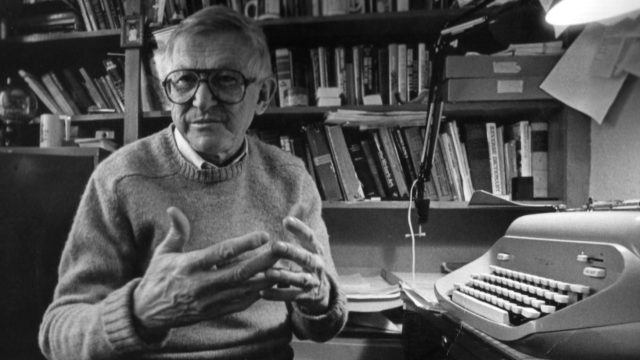Robert Cormier was for many years part of my academic life. Most notably, to the point that it’s a story most of my friends know, I had, for reasons, to take a semester of sophomore high school English in summer school. We had a student teacher who assigned us The Chocolate War. Which I’d read before but was perfectly okay with reading again. The rest of the class took longer. After some weeks, we watched the movie. The final exam asked what would happen had [spoilers] not happened. I blinked, then wrote an extremely detailed answer followed by, “Because that’s what happened in the book.”
Like Other Book We Read In That Class Of Mice and Men, The Chocolate War is high on the list of frequently banned books. Cormier’s books end up there, when people are familiar with them at all. His books are not exactly idyllic; the characters in his books are not necessarily realistic teenagers, but they do have realistic teenager language and concerns. There is a lot of swearing and a lot of sexuality. Kids don’t reliably get along with their parents or other authority figures. Endings are not always happy. This means they are books that appeal to students and less so to the kind of people who ban books.
Cormier himself grew up in the New England poverty he so frequently described in his books. Leominster, Massachusetts, became Monument; French Hill became Frenchtown. He was the second of eight, and his family was frequently unable to afford rent. They moved a lot, presumably one step ahead of an angry landlord. It’s not hard to picture young Robert believing this would be his adulthood and resigning himself to it, until a teacher submitted a story of his to a magazine and started his career.
Cormier stayed close to his roots. Not just narratively—almost all his stories are set in and around “Momument” in one way or another—but literally. He lived in the area his whole life—he died in Boston, less than fifty miles away, and he maintained a summer home even closer. He wrote for the Fitchburg Sentinel throughout his professional career. Oh, Hollywood wasn’t exactly banging down his door, but the books sold consistently enough to let him live wherever he wanted; clearly, he did.
The books are flawed. Very few female characters are developed beyond appealing to the male characters’ desires; there are practically no black characters at all. In fact, Cormier once wrote a story about the only black family in town and why they ended up moving—it’s fiction, but one wonders exactly how fictional it is. There’s something to be said for choosing not to write people with whom you’re not familiar, but maybe, you know, familiarize yourself? Still, they are excellent books, and The Chocolate War was poorly served by its movie even without that ending.
Don’t make me run a chocolate sale to earn money; consider supporting my Patreon or Ko-fi!

